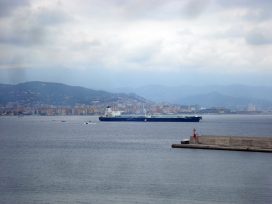The European Union is often referred to as a ‘peace project’ in cautionary terms, in response to rising nationalist populism. The term recalls an important aspect of the genesis of post-war Europe and the political and moral wisdom of its founders. But a defence of Europe based primarily on anti-fascism runs into dead ends – both conceptually and politically – if it equates nationalism with the politics of national interest. Or, conversely, if it sees European integration as a ‘post-national’ movement.
It is precisely by framing the debate in terms of the nation state that nationalist populism is successful. It crowds out other levels and topoi of the political. The effect of the Brexit debate, for example, has been to paralyse a left that would prefer to talk about social justice as if Europe were a mere abstraction.
We need a narrative of Europe – or simply a tradition – that integrates anti-fascism but also goes beyond it. As Mary Kaldor argues, the contemporary fixation on the national prevents us remembering a vital current of democratic renewal that began towards the end of state socialism in eastern Europe and came to an end with the ‘War on Terror’ early this century.
The transnational dialogue between western European peace movements and human rights groups in the East, Kaldor argues, laid the foundations for a global language of transnational civil society and humanitarianism. Not only was Europe itself reunited on the basis of the cognate demands of disarmament and democracy, it also came to represent a global politics that stood in direct opposition to the militaristic geopolitics of the Cold War.
How far Europe honours its tradition as a peace project depends on how it deals with internal conflicts arising from violence in its immediate neighbourhood and beyond. It also depends on whether Europe acts concertedly in standing up for rule of law standards beyond its borders. These challenges are not incompatible with a politics of national interest, but they cannot be perceived, let alone met, in terms of national interest alone.

Simon Garnett
Senior editor
This editorial is part of Eurozine’s 24/2019 newsletter. You can subscribe here to get the bi-weekly updates about latest publications and news on partner journals. It is also published on Medium.







